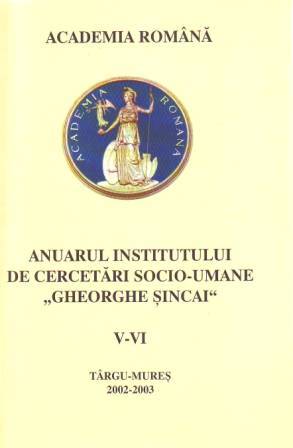Some Aspects of the Transition from the Late Antiquity to the Early Middle Ages
Some Aspects of the Transition from the Late Antiquity to the Early Middle Ages
Author(s): Adrian HusarSubject(s): History
Published by: Institutul de Cercetări Socio-Umane Gheorghe Şincai al Academiei Române
Keywords: transition; the Late Antiquity; the Early Middle Ages; the Roman frontiers; desegregation of the Roman world; dissolution of the frontiers
Summary/Abstract: The present study intends to elucidate some aspects of the long transition from the Late Antiquity (characterized by the gradual decline of the classical Mediterranean society, government, and religion, and the initial formation of a strictly Western European, Christian society) to the Early Middle Ages from the perspective of the evolution of the Roman frontiers in the epoch of the late Empire. Concomitantly with the desegregation of the Roman world in the Late Antiquity we witness the dissolution of the frontiers that were separating the Roman world from the German, Asian, Persian, Islamic and African ones, which were surrounding it. In the Late Antiquity new frontiers were drawn, which were going to separate the Oriental-Byzantine and Islamic worlds- from the Occidental post-Roman (medieval) world. Essential to the discussed aspects is the role played frontiers in the Roman-barbarian relations. The study reaches the conclusion that, from separatory elements on the bureaucratic- administrative level as they were originally, the Roman frontiers became instruments of symbiosis on the cultural level. In conclusion, early medieval European society was the successor society, not of the ancient Mediterranean society, but of the Hallstatt – La Tène societies of the North as transformed by the Roman frontier.
Journal: Anuarul Institutului de Cercetări Socio-Umane »Gheorghe Şincai« al Academiei Române
- Issue Year: 2003
- Issue No: 05+06
- Page Range: 481-502
- Page Count: 22
- Language: English

